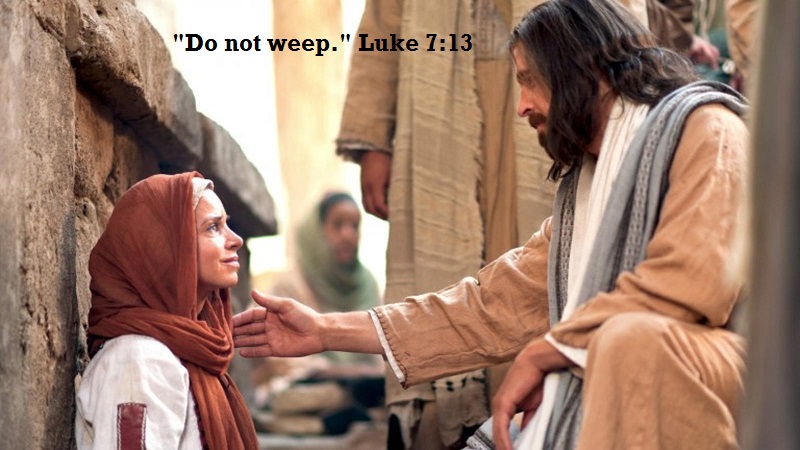When the Lord saw her, He had compassion on her and said to her, “Do not weep.”~Luke 7:13
Several years ago, my father was diagnosed with advanced colon cancer. Not willing to be defeated by the disease, my family and I decided to have him undergo a major operation, which involved excising several areas of metastasis in the liver, as well as resecting the primary tumor. I remember being in the office of the surgical oncologist with my father, discussing the case and reviewing the CT scan.
Having encountered similar types of cancer myself, I knew, cerebrally, that the odds were very much against my father. However, emotionally, for both of us, I needed to hear some hope of a cure from the expert, even if it was just a glimmer.
The day of the operation came. The rest of the family and I greeted our father with smiling faces that, with years of training, hid our fears and anxiety as we watched him being wheeled through the operating room door. Those six hours of operation felt like days. A thousand thoughts went through my mind. It was such a relief when the surgeon finally came to talk to us, telling us that our dad was doing well, and they felt they had taken care of the tumors.
After our father recovered from surgery, he still had countless clinic visits and chemotherapy sessions. I remember, on several occasions, having to wait our turn to see the oncologist. Yes, it was not unusual to wait an hour to have a 10-minute follow-up visit. The experience of waiting for doctors not only happens to my own patients, but it has become a norm in our society.
Although my father finally succumbed to the disease, I learned that it is essential, as a clinician, to try connect with my patients on an emotional level. In dealing with patients who have cancer, it is important to emphasize the positive aspects of the disease process. To this day, I am very appreciative of the hope the surgeon gave us that day in his office.
I have also learned that patients’ families are usually very anxious when their loved ones are undergoing an operation and, as a clinician, I can play an important role in bringing relief to those individuals. Just because I have performed an appendectomy a thousand times, this operation will be the first for my patient, who will experience a level of anxiety. In regard to the lengthy clinic wait, I have learned the importance of coming to clinic on time-and also decreasing the daily clinic load-in order to allow more time for each patient.
The next time I see a patient with cancer or take care of a patient requiring an operation, I will intentionally try to apply the lessons learned from “the other side of the fence.”-On Wang, LLUSM class of 1989, is a general surgeon in Los Angeles, California.
